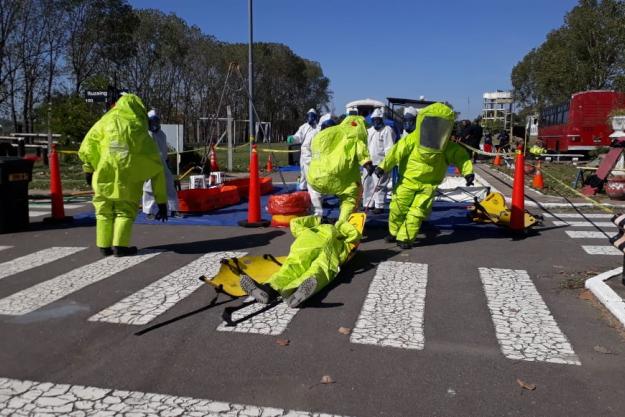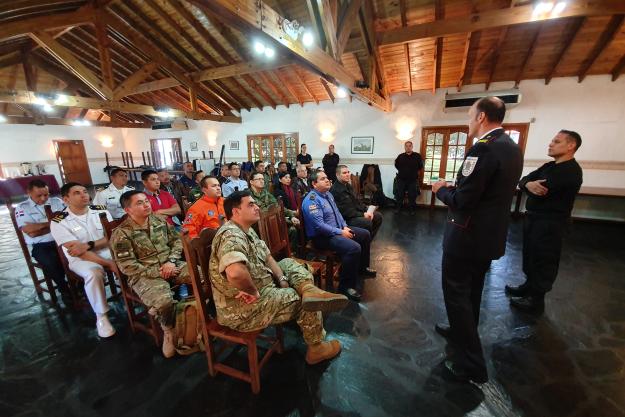
Participants at an Advanced Course on Managing Chemical Emergencies
THE HAGUE, Netherlands — 6 May 2019 — Twenty-one first responders advanced their skills in managing chemical emergencies during the advanced course for countries from Latin America and the Caribbean, held in Buenos Aires, Argentina, from 29 April – 3 May.
The representative of the Ministry of Foreign Affairs and Worship of Argentina, Vice Chancellor Gustavo Zlauvinen, highlighted in his opening remarks the longstanding cooperation between Argentinian institutions and the Technical Secretariat of the Organisation for the Prohibition of Chemical Weapons (OPCW). He stressed that this partnership is meant to achieve stronger regional response capacities against chemical incidents in Latin American and the Caribbean, and advance the full implementation of Article X of the Chemical Weapons Convention (CWC).
The Head of Assistance and Protection Branch (APB), Mr Shawn DeCaluwe, thanked Argentina for its continued and coordinated support to assistance and protection capacity building activities of the Technical Secretariat that have made it possible to offer this course to the Region for the eighth consecutive time.
The agenda of the Eighth Regional Advanced Assistance and Protection Course and Exercise on Chemical Emergency Response covered the use of individual protective equipment, as well as practical exercises in containment, rescue and decontamination procedures.
Two OPCW trained instructors from Spain and Uruguay supported the training under the umbrella of APB´s Instructor Development and Exchange Programme.
The course built on the competencies gained by the participants during the basic course held in Panama in March 2019.
The event was organised by Argentine’s National Authority to the CWC based at the Ministry of Foreign Affairs and Worship, in cooperation with Federal Fire-Fighter Superintendence of the Argentine Federal Police, and the OPCW Technical Secretariat.
The participants represented 16 OPCW Member States: Argentina, Belize, Bolivia, Brazil, Chile, Costa Rica, Cuba, Dominican Republic, Ecuador, El Salvador, Guatemala, Honduras, México, Panamá, Peru, and Uruguay.

Participants at an Advanced Course on Managing Chemical Emergencies
Background
As the implementing body for the Chemical Weapons Convention, the OPCW, with its 193 Member States, oversees the global endeavour to permanently eliminate chemical weapons. Since the Convention’s entry into force in 1997, it is the most successful disarmament treaty eliminating an entire class of weapons of mass destruction.
Ninety-seven percent of all chemical weapon stockpiles declared by possessor States have been destroyed under OPCW verification. For its extensive efforts in eliminating chemical weapons, the OPCW received the 2013 Nobel Peace Prize.
